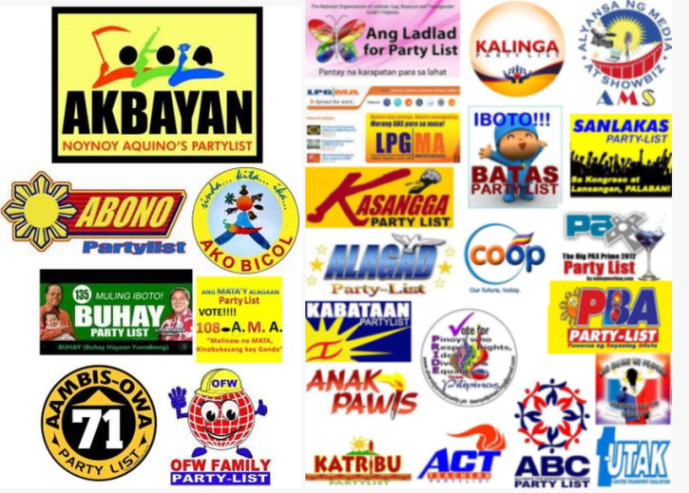Retrospective: The madcap names of the party-list groups (2010)The current furor and public indignation over the stupendously abusive and arrogant behavior of a Filipino party-list congressman at the Philippine national airport last September 29, 2018, shown on mainstream and social media for all the world to see (“Lawmaker breaches airport security”), impelled me to post in retrospective this 2010 essay of mine on the country’s party-list system. It expressed my feelings—feelings that I feel even more acutely now—about the shamelessly exploitative and opportunistic behavior of many party-list groups not just in naming themselves but in their profound tendency to abuse and debase the country’s democratic system and institutions.As a voter in my barangay in Metro Manila, I was delighted to receive yesterday an official sample ballot for the national elections on May 10. From the voting sections for president down to senators, the list of names looked clear, rational, and comprehensive to me. Most of the names evoked a familiar face or at least a family dynasty for as far back as I can remember, so I told myself it would be a breeze marking or skipping those ovals beside them come election day.
I must admit, though, that I was aghast when I reached the sample ballot’s long, four-column party-list section. I know that there are many legitimate and well-meaning party-list groups in that list, but going over the total of 187 mostly misshapen, outlandish, and manipulative names made my head spin. By virtue of the English alphabet and the COMELEC’s knee-jerk use of alphabetical listings, no less than 111 of the 187 party-list groups (60%) had used the letter “A” as the first letter of their names. In the madcap race to be listed first in COMELEC’s alphabetical list, 11 of them even shamelessly prefixed their official names with the numeral “1” just so they could be listed ahead of all the other “A”-listers.

Really now, only in the Philippines would otherwise sensible people contrive to use the English-language article “a” to precede an obviously Tagalog party-list name, or prefer to use the Tagalog “ang” to precede their official Tagalog name in an alphabetical list when, in fact, voter recall for that name would be much higher without that article. So many more ridiculous spelling contortions for party-list groups are to be found in the sample ballot, but I’ll refrain from discussing them to avoid rewarding such wildly opportunistic names with free publicity.
I distinctly remember that until the advent of the party-list system, organizations that wanted to make their mark in politics would painstakingly choose names to truly reflect their character, aspirations, and specific advocacies, like the “Nacionalista Party,” “Liberal Party,” and “Labang Demokratiko ng Pilipino” of old. But today, with good, old greed and with P70 million in annual Countryside Development Funds as motivation, some obscure groups have even gone as far as naming themselves with abstruse names starting with a double “A” or “AB”—some even callously topping them with the numeric “1” for good measure—to be as close as possible to the top of the listing.
This preposterous, alphabet-driven angling for name recall could have been easily avoided had the COMELEC been more linguistically astute and prudent in laying the mechanisms for the country’s party-list elections. Based on its experience in the previous party-list polls, it should have already liberated its party-list listing system from the stranglehold of the English-language alphabetical system and the alphanumeric system. A simple announcement that the listing will be alphabetical or reverse alphabetical or purely random, with the choice of sequencing to be drawn at random, should instantly restore order and sanity in how the party-list groups will name themselves.
This non-alphabetical-biased approach will also greatly level the playing field for the party-list elections. It will provide strong motivation to party-list groups to be more sensible in naming themselves; instead of becoming shamelessly exploitative by coming up with absurd “A”-names, they will be encouraged to retain the name that truly conveys their goals and aspirations. More important, I think, it will minimize the biasing effect on lazy voters in favor of party-list groups near the frontline of the alphabetized list—a state of affairs that encourages the ludicrous opportunism that’s so evident in how the party-list groups have been naming themselves.
But if the COMELEC still decides to retain its listing methodology for party-list groups, I’m serving notice that I’m registering “1-A-AABANGAN” now for the party-list elections after next. Let’s see if anybody can beat that.
This essay, 689th of the series, first appeared in the column “English Plain and Simple” by Jose A. Carillo in the May 8, 2010 issue of The Manila Times
, ©2010 by the Manila Times Publishing Corp. All rights reserved.